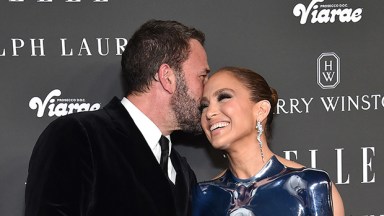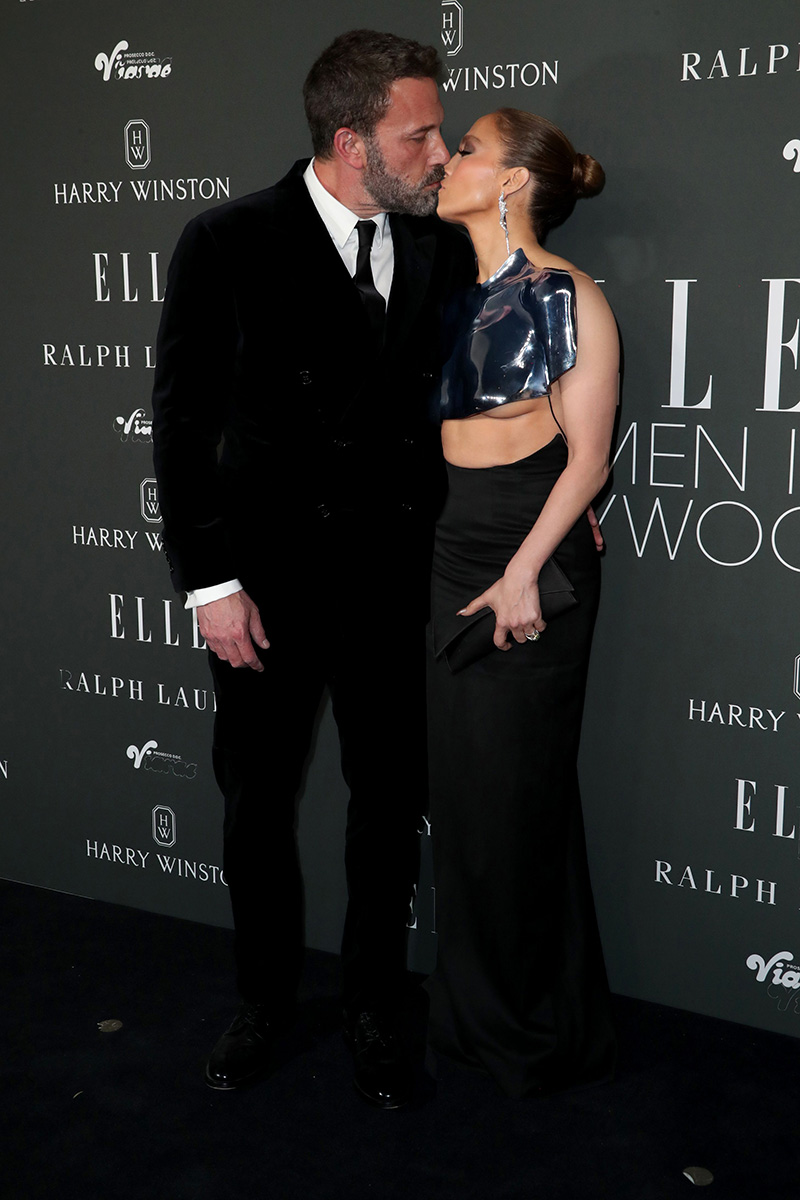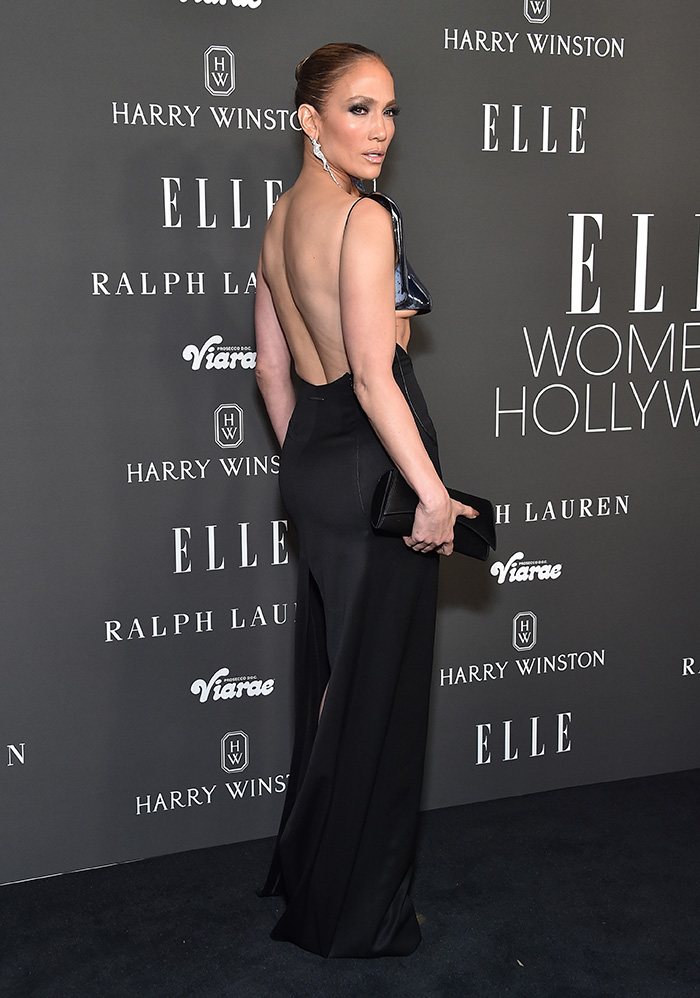
Jennifer Lopez was the moment last night at Elle’s Women in Hollywood Awards. The Icon Award winner, 54, arrived to the December 5 event wearing a skin-baring, metallic, blue breastplate with a black, floor-length skirt while posing for pictures beside her husband, Ben Affleck. The fan-favorite couple even showed off a little PDA as the cameras flashed.
For the evening, J.Lo tied her hair back into a neat bun and accessorized her show-stopping outfit with a pair of crocodile diamond earrings. Ben, 51, leaned in to kiss his wife for a brief moment after he joined her for a photo-op. Per Variety, the Good Will Hunting co-writer joked that Jennifer’s chrome breastplate was giving him “PTSD” because it gave him “flashbacks” to wearing his Batman costume.
While speaking with Elle on the red carpet, Jennifer was asked what it means to her to receive the Icon Award for the fifth time in her career. “To be honest, I think it is a tremendous honor to be here with so many women and to be recognized by so many women,” the “On the Floor” hitmaker said, according to an Instagram video shared by the publication. “That’s what makes me feel very humble. I’ve always been such a girls’ girl.”

Upon accepting her award on stage, the Bronx native noted in her speech, “I don’t have an Oscar, and I don’t have a Golden Globe, and I don’t have a Grammy or a SAG Award or a BAFTA, or a Critics Choice or a Hollywood Film Award, but this is my fifth Icon Award. Of all the things that I thought I would grow up to be when I was a little girl, the last thing you know I was gonna have on my list was icon.”

She then discussed what the recognition acknowledges, noting that an icon is “being a representative symbol, in this case, what it is to be a woman in Hollywood.”
“But when I think about that, and about the things that I spent my life doing and working at, you know, I started off as dancer,” the Mother actress elaborated. “And then, I started making movies and then records, and then creating my own brand somehow and companies that each step of the way. And each transition, there seemed to be tremendous opposition, both literal, like physical and emotional, to the idea that you could do many different things and be taken seriously [sic].”